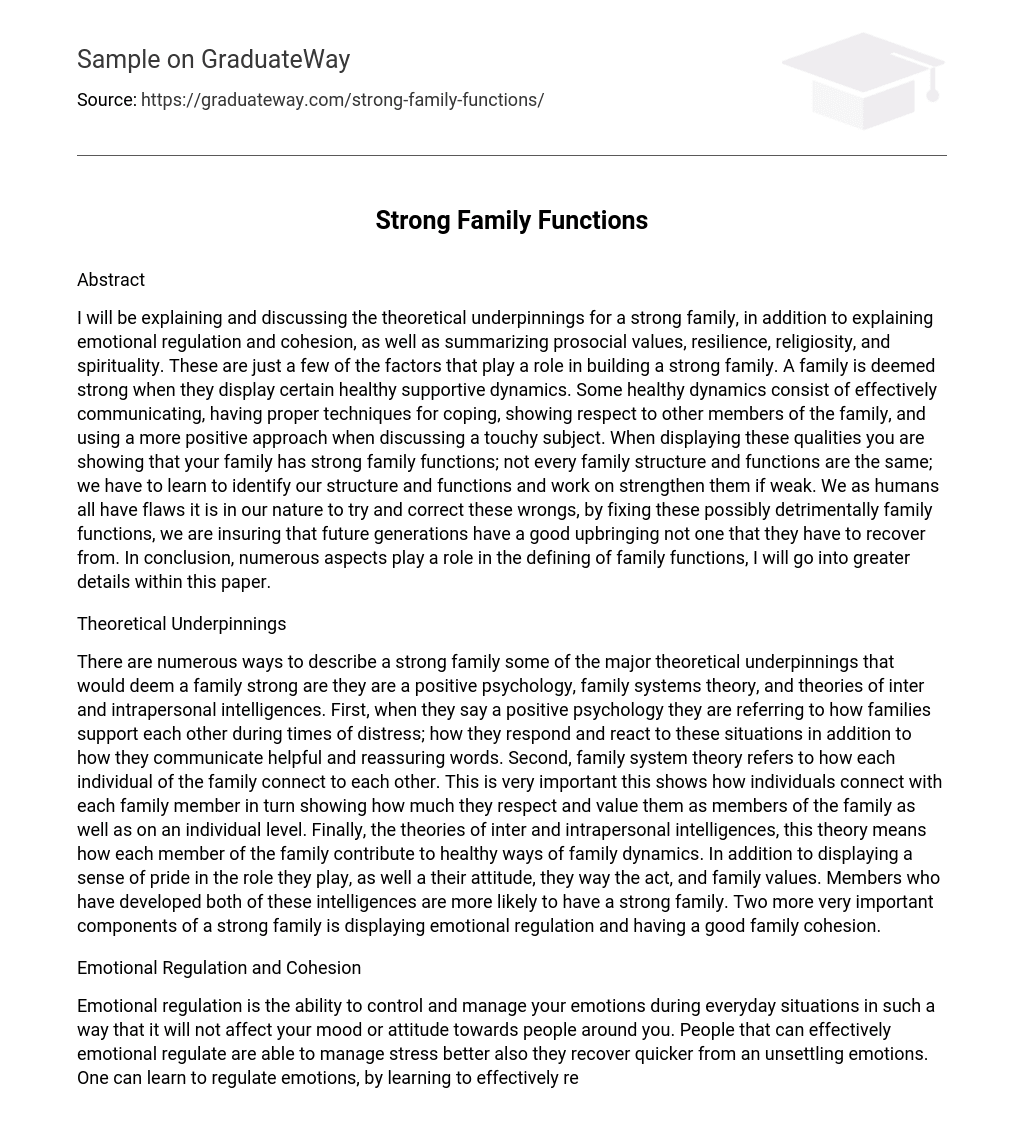Abstract
I will be explaining and discussing the theoretical underpinnings for a strong family, in addition to explaining emotional regulation and cohesion, as well as summarizing prosocial values, resilience, religiosity, and spirituality. These are just a few of the factors that play a role in building a strong family. A family is deemed strong when they display certain healthy supportive dynamics. Some healthy dynamics consist of effectively communicating, having proper techniques for coping, showing respect to other members of the family, and using a more positive approach when discussing a touchy subject. When displaying these qualities you are showing that your family has strong family functions; not every family structure and functions are the same; we have to learn to identify our structure and functions and work on strengthen them if weak. We as humans all have flaws it is in our nature to try and correct these wrongs, by fixing these possibly detrimentally family functions, we are insuring that future generations have a good upbringing not one that they have to recover from. In conclusion, numerous aspects play a role in the defining of family functions, I will go into greater details within this paper.
Theoretical Underpinnings
There are numerous ways to describe a strong family some of the major theoretical underpinnings that would deem a family strong are they are a positive psychology, family systems theory, and theories of inter and intrapersonal intelligences. First, when they say a positive psychology they are referring to how families support each other during times of distress; how they respond and react to these situations in addition to how they communicate helpful and reassuring words. Second, family system theory refers to how each individual of the family connect to each other. This is very important this shows how individuals connect with each family member in turn showing how much they respect and value them as members of the family as well as on an individual level. Finally, the theories of inter and intrapersonal intelligences, this theory means how each member of the family contribute to healthy ways of family dynamics. In addition to displaying a sense of pride in the role they play, as well a their attitude, they way the act, and family values. Members who have developed both of these intelligences are more likely to have a strong family. Two more very important components of a strong family is displaying emotional regulation and having a good family cohesion.
Emotional Regulation and Cohesion
Emotional regulation is the ability to control and manage your emotions during everyday situations in such a way that it will not affect your mood or attitude towards people around you. People that can effectively emotional regulate are able to manage stress better also they recover quicker from an unsettling emotions. One can learn to regulate emotions, by learning to effectively regulate emotions it helps people to connect with you and provides a sense of trust in addition to lessening the changes of having a negative reaction to unregulated reactions.





